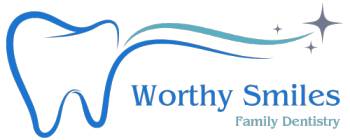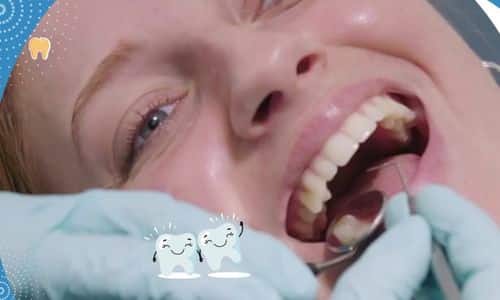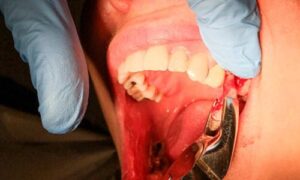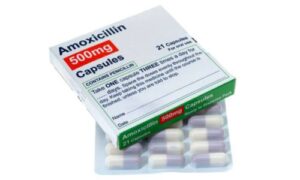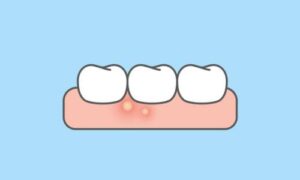When it comes to taking care of our health, oral hygiene is often overlooked. However, our oral health is just as important as any other aspect of our well-being. Poor dental hygiene can lead to various issues, from bad breath and tooth decay to more severe health conditions. This article will explore the dangers of poor dental hygiene and how it can impact your health.
Introduction
We will begin by discussing dental hygiene and why it is essential. We will also discuss how poor dental hygiene can affect your health and quality of life.
What is Dental Hygiene?
Dental hygiene refers to the practice of maintaining clean teeth and healthy gums. This includes regular brushing, flossing, and dental check-ups.
Why is Dental Hygiene Important?
Good dental hygiene is essential to maintaining healthy teeth and gums. It helps to prevent tooth decay, gum disease, and other oral health problems. It can also improve your overall health and well-being.
How Can Poor Dental Hygiene Affect Your Health?
Poor dental hygiene can lead to various health problems, from mild to severe. Some of the most common issues include bad breath, tooth decay, and gum disease. In more severe cases, poor dental hygiene can lead to heart disease, diabetes, and other extreme health conditions.
The Impact of Poor Dental Hygiene on Your Health
This section will dive deeper into the dangers of poor dental hygiene and how it can affect your health.
Bad Breath
One of the most common effects of poor dental hygiene is bad breath. Food particles can get stuck in your teeth and gums when you don’t brush and floss regularly. These particles then break down and release an unpleasant odour. In addition to being embarrassing, bad breath can also affect your social life and self-confidence.
Tooth Decay
Tooth decay is another common issue caused by poor dental hygiene. When you don’t brush and floss regularly, plaque builds up on your teeth. This plaque produces acids that can eat away at your tooth enamel, leading to cavities. If left untreated, cavities can cause tooth pain and even tooth loss.
Gum Disease
Gum disease is a severe condition caused by poor dental hygiene. When plaque builds up on your teeth, it can cause your gums to become inflamed and bleed. Gum disease can lead to tooth loss and other serious health problems if left untreated.
Heart Disease
Recent studies have shown a link between poor dental hygiene and heart disease. When you have gum disease, bacteria can enter your bloodstream and travel to your heart. This can cause inflammation and lead to heart disease.
Diabetes
People with diabetes are at a higher risk of developing gum disease. In turn, gum disease can make it more difficult to control blood sugar levels, leading to complications with diabetes.
Other Health Conditions
Poor dental hygiene is also linked to other health conditions, including stroke, respiratory infections, and dementia. The bacteria in your mouth can enter your bloodstream and affect different body parts, leading to various health problems.
How to Maintain Good Dental Hygiene
Maintaining good dental hygiene is essential to preventing the health problems associated with poor dental hygiene. This section will discuss how to keep your teeth and gums healthy.
Brushing and Flossing
Brushing and flossing are the most important aspects of dental hygiene. It would help to brush your teeth using fluoride toothpaste at least twice daily. Flossing is also essential, as it helps remove food particles and plaque between your teeth.
Regular Dental Check-Ups
Regular dental check-ups are essential to maintaining good oral health. Your dentist can identify issues early on and provide treatment before they become more serious. It would help to visit your dentist at least twice yearly for a routine check-up and cleaning.
Healthy Diet
Eating a healthy diet is also essential to maintaining good dental hygiene. Avoid sugary and acidic foods and drinks, as these can contribute to tooth decay and erosion. Instead, choose a diet rich in fruits, vegetables, lean protein, and whole grains.
Avoiding Tobacco and Alcohol
Tobacco and alcohol can also contribute to poor dental hygiene. Smoking and chewing tobacco can cause gum disease and tooth decay, while excessive alcohol consumption can lead to dry mouth and other oral health problems.
Conclusion
Poor dental hygiene can have severe consequences for your health and well-being. You can prevent these issues by maintaining good dental hygiene and smiling happily. Brush and floss, visit your dentist regularly, eat a healthy diet, and avoid tobacco and alcohol. You can protect your overall health by caring for your teeth and gums.
FAQs
What are the consequences of poor dental hygiene?
Poor dental hygiene can lead to bad breath, tooth decay, gum disease, and severe health conditions like heart disease and diabetes.
How often should I brush and floss?
It would help if you brushed your teeth at least twice daily and flossed at least once daily.
How often should I visit the dentist?
It would help to see your dentist at least twice a year for a routine check-up and cleaning.
What should I eat to maintain good dental hygiene?
A healthy diet rich in fruits, vegetables, lean protein, and whole grains can help to maintain good dental hygiene.
Can tobacco and alcohol contribute to poor dental hygiene?
Smoking, chewing tobacco, and excessive alcohol consumption can contribute to poor dental hygiene and health problems.
